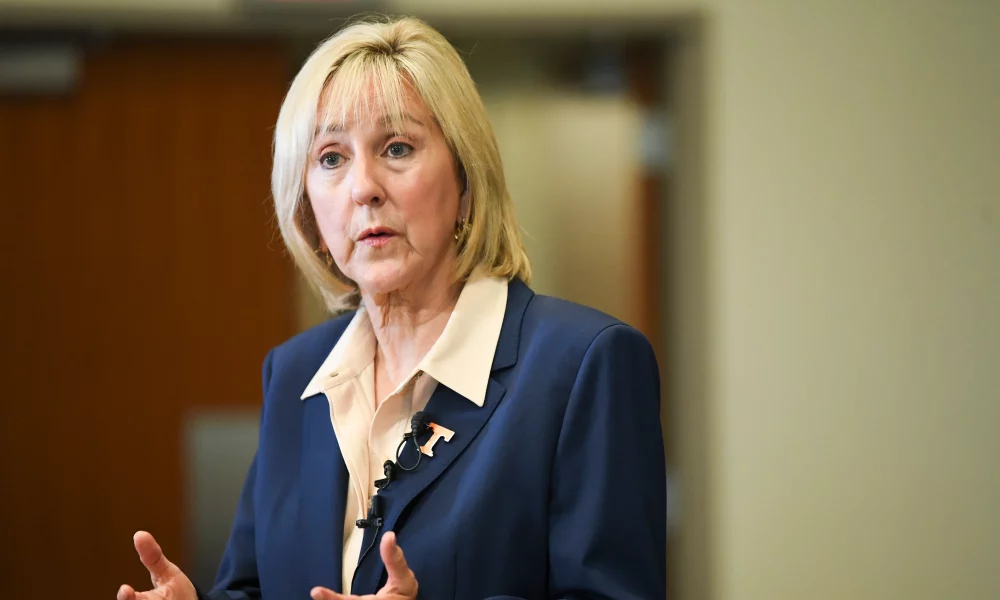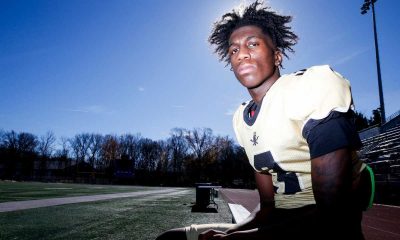Sport
University of Tennessee Chancellor Donde Plowman wrote a letter to NCAA President Charlie Baker

KNOXVILLE, Tenn. (WVLT) – University of Tennessee Chancellor Donde Plowman wrote a letter to NCAA President Charlie Baker Monday following an investigation from the NCAA into Tennessee’s Name, Image and Likeness (NIL) practices. WVLT News got ahold of that letter through a Freedom of Information Act request to UT Tuesday; here’s a breakdown.
Related Coverage: NCAA investigating University of Tennessee for NIL violations
In the letter, Plowman says the NCAA’s plans to bring allegations forward, allegations she says are untrue and could hurt student athletes.
“Earlier today, a team from the University of Tennessee met with members of your enforcement staff to discuss allegations the NCAA intends to bring against Tennessee related to NIL,” Plowman says. “The NCAA’s allegations are factually untrue and procedurally flawed.”
The letter comes as the NCAA has began looking into the University of Tennessee less than a year after the university was fined $8 million for recruiting violations made while Jeremey Pruitt was head football coach.
Those violations were voluntarily reported by the Tennessee system itself, and the school’s honestly played a large part in the NCAA’s final decision when it came to punishment. In the letter, Plowman reminds Baker about Tennessee’s commitment to self-reporting, further stating that the university has not done anything wrong with its NIL practices.
“As you have seen in our previous dealings with the NCAA, when we are wrong at the University of Tennessee, we admit it,” Plowman said. “In fact, just last year, the Division I Committee on Infractions as well as the NCAA enforcement staff cited exemplary cooperation by the University of Tennessee and said we set the standard other schools should follow.”
She goes on to take issue that Tennessee’s leadership should see praise in the summer of 2023, only to be questioned in such a way the next academic year.
“It is inconceivable that our institution’s leadership would be cited as an example of exemplary leadership in July 2023, then as a cautionary example of a lack of institutional control only six months later,” Plowman says.
However, Plowman’s biggest gripe with the NCAA is, according to her letter, the lack of clarity in the NCAA’s NIL rules and regulations. She references Baker’s appearance in front of Congress directly, further stating that the NCAA’s rules are too vague to enforce any punishment on Tennessee.
“As you acknowledged in the recent congressional hearing, the NIL guidance from the NCAA to student-athletes and institutions has been ‘inconsistent and unclear, and the ambiguity has filled schools, student-athletes, and collectives with uncertainty about how to follow the rules,’” Plowman says.
Plowman claims the NCAA is trying to retroactively enforce regulations and punish institutions to make an example of them, despite the fact that Tennessee complied completely with the latest NCAA guidance on NIL partnerships. She furthers the argument by referencing a recently-passed bylaw from the NCAA that would mean institutions who come under fire in NIL cases don’t have the benefit of presumed-innocence.
“A “guilty until proven innocent” standard is not partnership, is not problem-solving and violates the core principle in our country’s justice system of ‘innocent until proven guilty,’” Plowman says.
When WVLT News reached out to the NCAA about the investigation, Associate Director of Communications Meghan Durham Wright provided the following statement:
All in all, Plowman says the university has complied with the NCAA’s regulations, but those regulations have constantly been in flux. The letter marks the start of what is almost certainly going to be a long, drawn out process that could set the stage for NIL deals across college football in the future.




